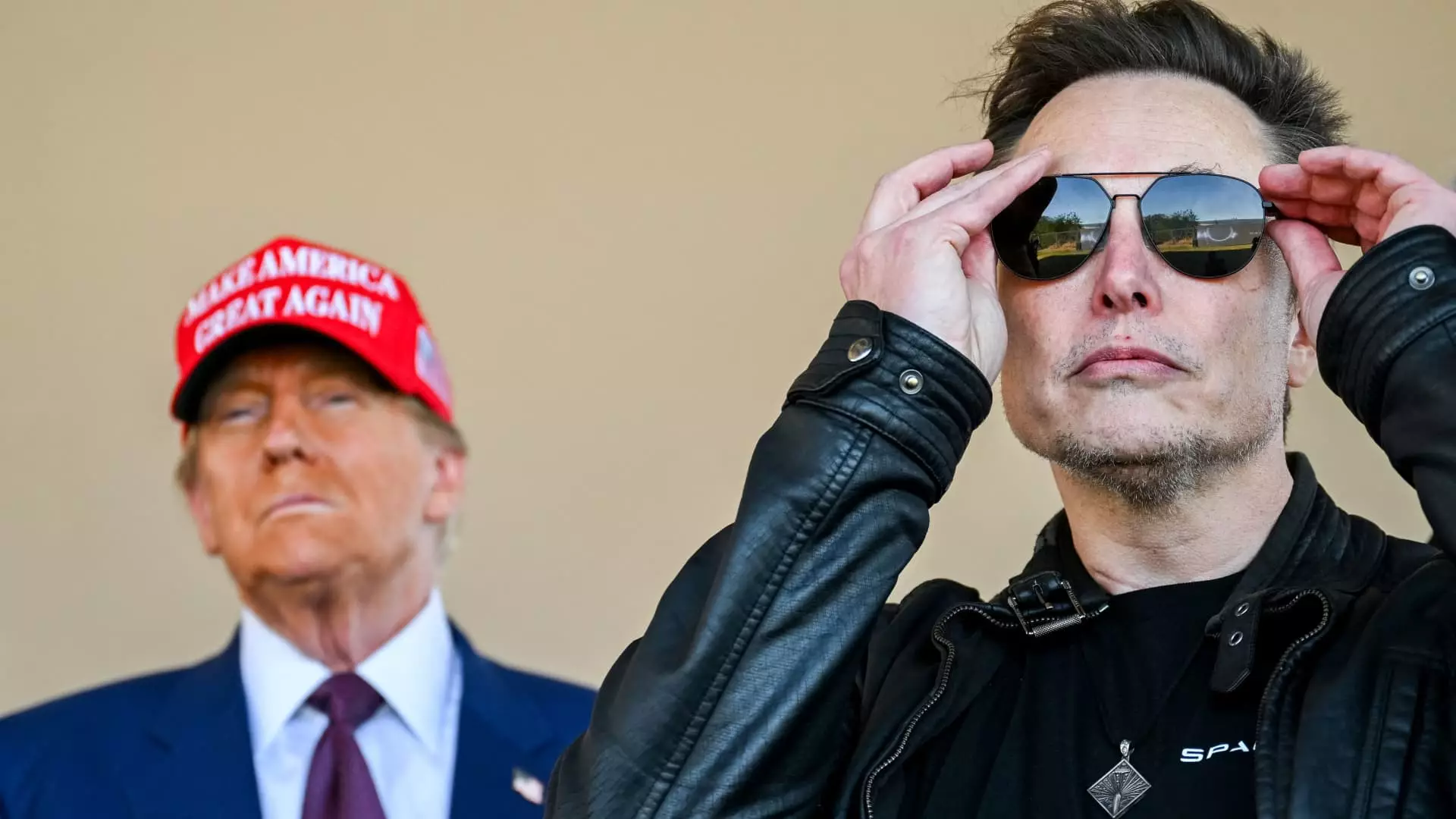Elon Musk stands as one of the most influential and polarizing figures in modern business. His portfolio encompasses a diverse range of industries, highlighted by electric vehicles through Tesla, space exploration with SpaceX, and innovative endeavors in artificial intelligence and neuroscience with xAI and Neuralink, respectively. Each of these companies is pushing boundaries and redefining their respective sectors. As Musk continues to expand his empire, it is crucial to analyze how these ventures interact with governmental dynamics, particularly with the looming prospect of a political shift in leadership.
Musk’s ventures have established significant financial ties with the federal government, particularly SpaceX, which has received an impressive $19 billion in contracts to date. Such funding is not merely a fiscal boon; it serves as a critical backbone for Musk’s operations, propelling developments in technology that often hinge on government support. Yet, this relationship invites scrutiny. With potential shifts in administration, particularly under a second Trump presidency, the nature of these contracts could evolve. Could Musk’s influence lead to an increase in lucrative contracts despite concerns over accountability? The readiness of SpaceX to capitalize on future federal opportunities raises questions about the sustainability of a business model heavily reliant on government incentives.
Musk’s criticisms of governmental regulatory frameworks have been vocal and persistent. This stance takes on greater significance with his co-leading role in the newly established Department of Government Efficiency, or DOGE, alongside former presidential aspirant Vivek Ramaswamy. Their goals suggest a stark ambition: significant regulatory reform that emphasizes reducing federal oversight. Their proposal to nullify regulations based on the assertion that many were not passed through traditional legislative procedures reveals an aggressive strategy that may garner both support and backlash. The implications of such deregulation are significant, particularly in sectors where innovation and safety standards are paramount.
In recent communications, both Musk and Ramaswamy have called for extensive audits of federal agencies, notably the Pentagon’s repeated failures to pass audits. This demand aligns with their overarching goals for greater efficiency and transparency in government spending. The idea of large-scale financial auditing invites a complex debate about accountability versus innovation—a necessary paradox as Musk’s companies navigate an environment where both ambition and oversight must coexist. Ultimately, while this push for thorough audits could streamline processes and eliminate inefficiencies, the underlying issues of bureaucratic inertia and oversight remain ever pertinent.
As Musk continues to harness his innovative prowess within his vast array of businesses, the intersection with governmental policies will be crucial to watch. The potential for a favorable political climate could amplify Musk’s aspirations; however, it also raises pressing ethical concerns about the implications of reduced regulation and increased government contracts. The outcome of this complex relationship will prove pivotal in shaping not only Musk’s future but also the broader landscape of technological advancement in the United States. In this volatile interplay of commerce and governance, the challenge will lie in balancing progress with responsibility.

